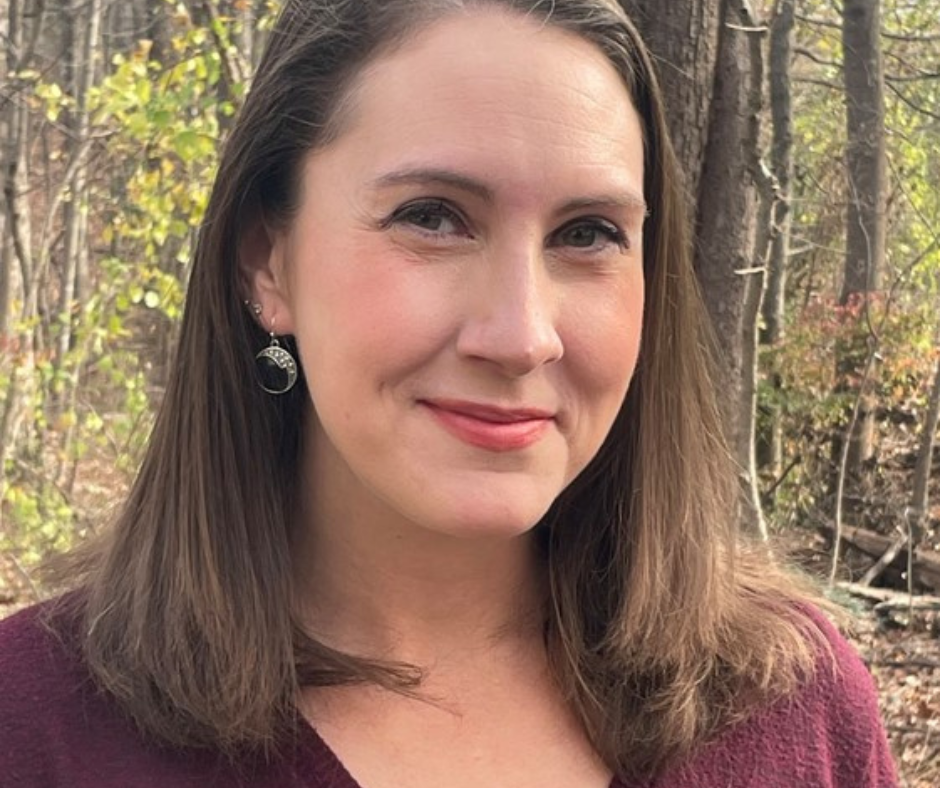LGBTQIA+ health research is not niche, it’s necessary, and one nursing student is showing us why

VCU School of Nursing Ph.D. student Megan Symanowitz is bringing her research know-how to address gender-minority health issues
Gender minority individuals, including transgender and non-binary individuals, often face significant challenges in receiving adequate healthcare. VCU School of Nursing doctoral student Megan Symanowitz is an early contributor to closing this care gap with her research that investigates the relationship between testosterone therapy, stress, and risks for atherosclerotic cardiovascular disease in trans men.
In her first undergraduate nursing school course, Symanowitz was inspired to participate in nursing research. “I love how detailed and intentional research needs to be in order to contribute to what we ‘know’ as a profession and scientific community. It’s a large group of individuals contributing tiny pieces of information that together can create a whole picture, like a mosaic. I just think that’s so beautiful,” she said.
Her contributions to nursing research began with her position at a hospital in Northern Virginia. During her employment there, the hospital applied for magnet status reflecting its high-quality nursing practice. “By the time I left there, I was the chair of the nursing research council and had attempted to do a retrospective research study with an outside Nurse Practitioner who had a DNP. I learned a lot from the experience but the study itself was a disaster. Too many confounding variables, poorly designed because I was basically doing it all myself with a BSN and a little bit of MSN level knowledge. Going through the process, though, was extremely educational for me,” Symanowitz recounts.
Like many nurse researchers, Symanowitz’s clinical experience inspired and propelled her to find, design and implement better care for those patients she had encountered in direct patient care. In her case, she wanted to remedy what she saw as a lack of gender-affirming care for trans and gender minority patients. “I chose cardiovascular health for gender minority individuals [as a primary focus] because my experience was in cardiovascular intensive care. In that role, we had a few trans patients come through and I was confronted with how terribly they were treated by the medical team, even my own surgeons, who were extremely disrespectful behind their backs. Being well versed in the social determinants of health I could see how being treated as abnormal or being ‘othered’ by society in general and specifically by the people who are meant to take care of you could result in poor health outcomes,” said Symanowitz.
The medical framework for her research, Symanowitz explains, was inspired by her dissertation advisor, Jo Lynne W. Robins, Ph.D., associate professor in the VCU School of Nursing, whose extensive research on cardiovascular health in Black women explores the dramatic differences in cardiovascular outcomes for the population in comparison with other racial groups.
Symanowitz’s hypothesis, which links chronic-stress induced response to minority population risk factors, draws on Robin’s foundational work with a different patient population. “I did a little digging in the literature and found that gender minorities did in fact have higher rates of myocardial infarction and cardiovascular disease compared to their cis peers. There was an opening to see how social determinants of health other than medical affirmation were contributing to the problem, and I wanted to start working in that area,” she explained.
Symanowitz is collaborating with another VCU faculty in the College of Humanities and Sciences to inform this work. Seeing a need to investigate social determinants of health, Symanowitz worked with Ethan Coston, Ph.D., Assistant Professor in the Department of Gender, Sexuality and Women’s Studies whose own work deals with health care disparities of the LGBTQIA+ community. “Given that there seems to be little expertise or focus on LGBTQIA+ health generally, let alone trans people and populations specifically, collaboration across and between disciplines is vital for students today. While I may not have formal training in nursing, I do have formal and advanced training in LGBTQIA+ health,” Coston said. They say that work like Symanowitz’s is important not only because it invites a responsible transdisciplinary scholarship approach, but also because it gives visibility to an underrepresented and unresolved health issue.
Coston shares that preliminary data from the past decade suggests that medical and health services students in the U.S. receive on average four to five hours of education on LGBTQIA+ topics. What is covered in health science curriculum is typically limited to HIV/AIDS and STIs instruction, leaving out critical topics that address common and persistent gender-minority health issues. “In order to effectively intervene on trans health disparities, and in order to combat the continued prejudices and biases that providers often have against trans people in any care setting (e.g. outside of gender affirming care), institutions must step up and lead in these areas,” they said.
Recently, VCU assembled an internal taskforce responding to student calls to integrate LGBTQIA+ topics into health science curriculums, with the hope that such an addition would benefit the training of the future health care workforce and introduce these topics to future researchers earlier in their careers. “Especially given that we have data showing that up to 30% of Zoomers (those born between 1997-2013) identify as something other than cisgender heterosexual (LGBTQIA+) and 5% identifying as trans (in pure population numbers, we see millions of trans and non-binary/gender independent youths in this generation). Trans and gender affirming care is not something that is niche, and providing general care to trans people and youth, will be an essential part of all providers’ jobs and likely is already,” said Coston.
Symanowitz is an example of that future–one where researchers choose their work in response to glaring issues they encountered in clinical experience in an effort to bring health equity to at-risk populations. With institutional support and collaborations with transdisciplinary scholars, the future of that work will be in good hands.
Symanowitz is still looking for participants for her trans men and cis women cohorts. Interested? Learn more
by Moira Neve
Categories News, Research, Students